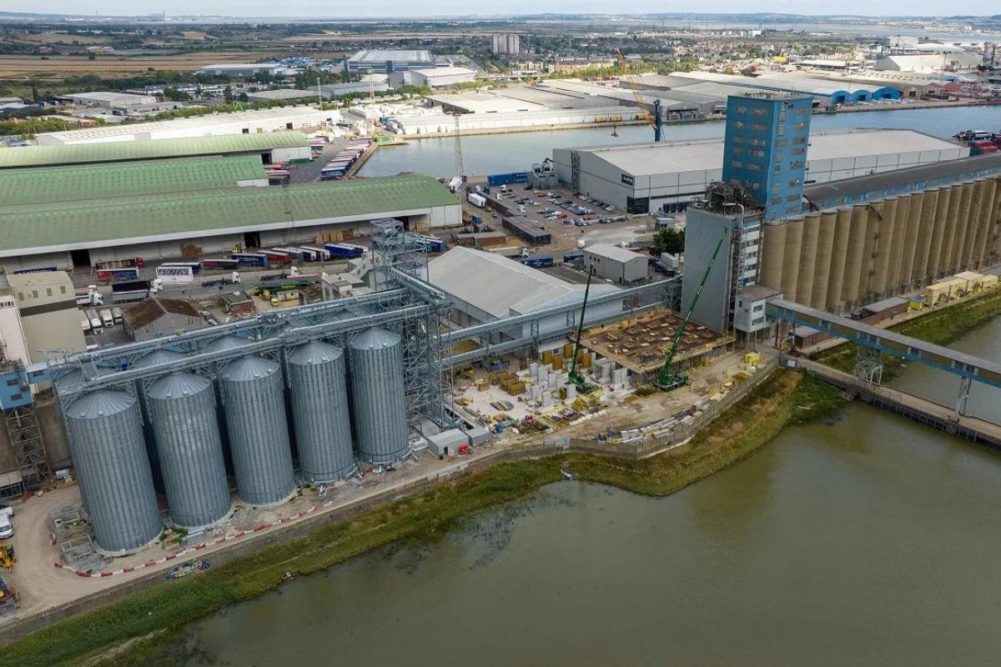TILBURY, ENGLAND — The Port of Tilbury on Aug. 31 announced the completion of a major construction project in which 10 grain silos and a flat storage unit with a combined storage capacity of 36,000 tonnes were installed. The announcement comes two years after a major fire damaged the site.
The silos, which stand 30 meters tall, will be filled and emptied using a new 650-tonne-per-hour transfer conveyor system. The conveyor also serves as an automated filling system for the 16,000-tonne flat store, which has a direct-delivery system to two customer flour mill sites. Once fully operational in September, the combined silo and flat store facility returns the terminal’s total on site storage to 100,000 tonnes.
Construction is also underway to replace a concrete silo. The new concrete silo, expected to be completed by December 2023, will add 34,000 tonnes of automated storage, underpinning the grain terminal as the United Kingdom’s largest import/export grain handling facility.
“We are extremely pleased to start the commissioning of our new metal silos and high-speed conveyor system,” said Peter Ward, commercial director at the Port of Tilbury. “Coupled with the construction of the concrete silo, the grain terminal will be back to full capacity on one site this year.
“Our terminal is a key facility in the South-East of England and an essential part of the UK agricultural supply chain for imports and exports and benefits from the full multimodal services at the Port of Tilbury, including river barge transportation into central London.”
The Tilbury Grain terminal has been in operation for over 50 years and is a key strategic facility in the southeastern UK for the grain import and export markets, handling more than 2 million tonnes of product from around the world.
Grain is a key commodity in the UK food supply chain for a number of uses, most notably within the flour milling and bakery industries. The terminal also operates a monthly coastal shipping service from Tilbury to its sister port in Kirkcaldy, Scotland for Carr’s Milling.




